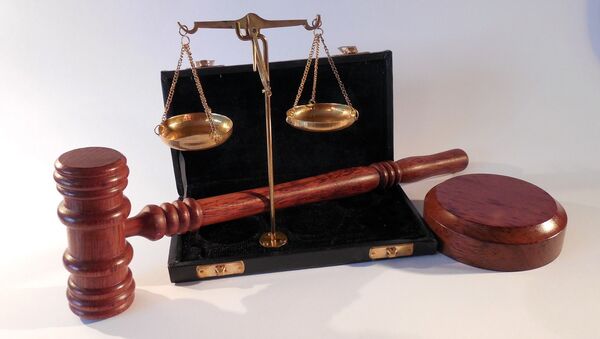"If the government doesn't express clearly what the judges should do about decisions of the ECJ after Brexit, or indeed any other topic after Brexit, then the judges will simply have to do their best," said Lord Neuberger, who is due to retire as president of the Supreme Court in September.
Today's warning by Lord Neuberger on the ECJ warning shows Government leaving judges in firing line on Brexit: https://t.co/Fvd5s9r7pe
— Liberal Democrats (@LibDems) 8 August 2017
"But to blame the judges for making the law when parliament has failed to do so would be unfair," he added.
The ECJ, which is the supreme court for the 28 current EU member states, is constantly developing laws on consumer rights, discrimination, human rights and trade disputes.
British courts are currently subject to rulings by the ECJ but Prime Minister Theresa May has said that should not be the case after Britain leaves the European Union in March 2019.
Govt's inability to set out clearly when judges should take into account ECJ rulings post-Brexit leaves judges open to mission creep charges
— Tom Brake (@thomasbrake) August 8, 2017
In the Repeal Bill, which the British government managed to narrowly get through Parliament with the support of MPs from the Democratic Unionist Party, it says British courts would not have to follow rulings made by the ECJ but "may do so if it considers it appropriate".
But Lord Neuberger, who is Master of the Rolls, said that was not clear enough and he said Parliament must be "very clear" in spelling out how British courts should react to landmark judgements in the ECJ.
He said judges should not be blamed for misinterpretations or for a widening gap between British and EU law.
Steadfast and not sentimental, fearless but restrained: Lord Neuberger’s advice for the judges who will succeed him. https://t.co/xGRA3shvms pic.twitter.com/dvIuCWMzV9
— Joshua Rozenberg (@JoshuaRozenberg) 7 August 2017
In 2011 Lord Neuberger made a speech, long before Brexit, when he spelt out that in his opinion politicians — who are elected — should always have supremacy over judges.
"While our constitutional settlement has been in one of its periodic reform phases over the last two decades, the idea that parliament is no longer legally sovereign and that the judiciary, whether at home or in Strasbourg, are the masters now is quite simply wrong," he said.
Owen Paterson, a Conservative MP and prominent Leave campaigner, said a new body should be formed which could scrutinize the judgments of the ECJ.
Another long-time Brexit supporter, Iain Duncan Smith MP, has said the ECJ was "an illegitimate challenge to our sovereignty."
"We have been clear that as we leave the EU, the direct jurisdiction of the European Court of Justice in the UK must come to an end," said a government spokesman.
"However, we want to provide maximum certainty so the Repeal Bill will ensure that for future cases, UK courts continue to interpret EU-derived law using the ECJ's case law, as it exists on the day we leave the EU," he added.
Since the Brexit negotiations began on June 19 there have been repeated calls for more clarity from the government.
Last week the Russell Group, which includes Britain's top universities, said there needed to be a clearer idea of how Brexit would affect EU nationals who worked in higher education.


